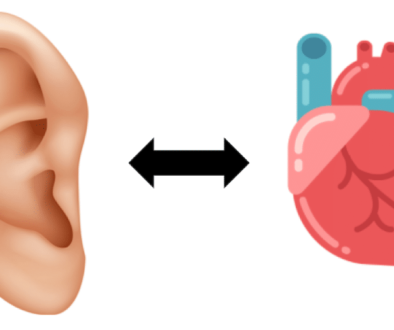How to Prevent Hearing Loss: Tips from Audiologists

Hearing ability is a precious gift that enriches us and helps us connect to the world. Unfortunately, due to hectic lifestyles and impractical choices, hearing loss has become increasingly common – affecting all ages. But the good news is that many of these hearing loss cases are preventable. By practicing healthy choices and taking proactive steps, you can safeguard your hearing health for ages to come.
Hearing loss is still the most common chronic health issue across the United States; it reduces your ability to decipher speech and sounds around you. Those who work in noisy environments, especially at construction sites, factories, or as road crews, may lose their hearing sooner than others due to constant noise without proper protection. Those who listen to loud music with headphones, attend open-air music festivals, frequent nightclubs or play games with constant loud noises in their ears – all get highly affected. The key to preventing or slowing down hearing loss is to understand what is “loud” and limit the exposure. Understand that the louder the volume, the less time you can listen to it before it impacts your hearing ability.
WHAT IS HEARING LOSS?
Hearing loss refers to a reduced or diminished ability to pick up on sounds or even understand them. Its severity can range from minor to extreme, depending on the underlying reasons – this includes ear infections, prolonged exposure to loud sounds, hereditary predisposition, head injury, side effects of a medicine, and aging.
WHAT ARE THE EARLY SIGNS OF HEARING LOSS?
It is important to note early signs, although they vary depending on the individual or specific type of hearing loss. Read on, and if you notice any of these signs or have concerns, connect with our hearing healthcare professionals to treat during the initial stage:
Difficulty Deciphering Conversations: One of the early signs of hearing loss is experiencing trouble or struggling to follow conversations, especially when in noisy environments. You may find comprehending what others are saying challenging, leading to repetitive questions or clarification.
Increasing Volume: Turning the volume up or if you find asking others to repeat themselves; a volume that others find too or extremely loud, indicates the onset of hearing loss. Gradually raising the volume over time is a major early sign.
Withdrawal from Social Events: Individuals experiencing hearing loss find themselves withdrawing from social gatherings or group conversations. Difficulty deciphering speech leads to feeling frustrated, embarrassed, and even isolated. This causes individuals to avoid situations that demand extensive communication.
Tinnitus: The perception of ringing, buzzing, or other ghost sounds in the ears, all are associated with hearing loss. If you often experience tinnitus, especially with other signs such as difficulty hearing, it is advised to check your hearing.
Misunderstanding: Another early sign of hearing loss is often misinterpreting or misunderstanding spoken words. You may find that certain sounds or speech patterns are muffled or unclear, leading to confusion as well as miscommunication.
WHY IS HEARING LOSS NOWADAYS AFFECTING PEOPLE AT EARLY AGE?
There are myriad reasons why hearing loss appears to affect people now at earlier ages. Before we discuss it any further, it is important to note that not everyone experiences hearing loss at a younger age. Listed below are some factors that contribute to the perception:
- Exposure to Noise: The ever-growing prevalence of loud environments and prolonged exposure to extreme volumes such as recreational activities, loud music concerts, and the constant use of personal audio devices set at high volumes are contributing majorly to hearing damage. Continuous exposure to excessive noise accelerates the onset of hearing loss. Sure, that favorite song of yours by Taylor Swift sounds great at volume 10, but it is affecting your ability to hear.
- Occupational Hazards: Certain occupations regularly expose people to high levels of noise. This includes those working at construction sites, manufacturing facilities; aviation, transportation, and entertainment are prone to noise-induced hearing loss, especially if you don’t wear protective gear for your ears.
- Lifestyle Choices: As mentioned at the beginning of the post, this modern lifestyle involves exposure to loud environments, such as clubs, sporting events, or concerts where high volume is evident and consistent – contributing to hearing damage. Additionally, the increased use of personal audio devices for extended periods, at high volumes, impacts hearing health.
- Medical Conditions: Some medical conditions, such as genetic disorders, infections, or autoimmune diseases, can lead to hearing loss, especially at an earlier age. Genetic predisposition affects individuals, making them prone to hearing issues.
- Increased Awareness: More and more people are now aware of the importance of hearing health, thanks to the cutting-edge diagnostic tools that led to improved identification and detection of hearing loss in the early phase. More and more people affected by hearing loss are seeking professional help and testing their hearing ability, contributing to the perception of early-onset hearing loss.
How to prevent hearing loss?
Listed below are important hearing loss prevention tips:
1.Protect Your Ears Against Noise
Exposure to loud noises is a major cause of hearing damage – you could be at a concert, power tool, or sporting event and wear earplugs or muffs to reduce the impact of excessive sound. Keep the volume at a normal level, especially when listening to music or watching TV – especially with headphones on.
2.Take Breaks from Noise
Giving your ears regular breaks is advised, especially when in loud environments or with headphones on. If you work at a loud site or in a noisy setting, take proper breaks in quieter areas, allowing your ears to recover. It is advised to let your ear calm down.
3.Be Cautious with Headphones
While earbuds and headphones offer entertainment with convenience, don’t forget that they can be harmful, especially when used improperly. Limit your use of headphones or earbuds, and when you do, keep the volume at a reasonable level. Consider using noise-canceling headphones since they block external sounds, allowing you to enjoy music without turning up the volume.
4.Follow a Healthy Lifestyle
Myriad lifestyle factors influence your hearing health. Avoid smoking; it can contribute to hearing loss. Manage chronic conditions like hypertension and diabetes – they affect your auditory system. Stay physically active and practice a balanced diet to promote overall well-being – this includes the health of your ears.
5.Be Cautious with Medicines
Certain medications, also known as ototoxic drugs, damage your hearing. This means if you are prescribed medication, consult your healthcare professionals about potential side effects on your hearing. Be vigilant and report any effects or changes in your hearing during or post medication.
6.Schedule Regular Hearing Tests
Like any other routine medical check-up, regular hearing evaluations play a key role, especially in detecting any potential hearing loss early. Schedule an appointment with trusted audiologists or hearing healthcare experts to monitor your hearing health while addressing the concerns.
SUMMARY
Hearing loss can happen at any age and for many reasons, but fret not! Bear in mind that age-related hearing loss isn’t preventable or curable; however, you can take steps to prevent noise-induced hearing loss. You can avoid noise-related hearing loss by getting annual hearing health testing, avoiding ear-damaging loud sounds, wearing ear protection muffs around loud noises, practicing safe headphone listening, stopping medications that cause hearing loss, and quitting smoking that causes hearing loss.
ABOUT HEARING HEALTH CENTER
We at Hearing Health Center are a team of professional audiologists that don’t just treat ears but treat the brain. We understand that we don’t hear with ears since they are merely add-ons that catch sound and channel it to our brains. The brain then processes and makes sense – which is why your ear must send the correct amount and quality of sound. Hearing Health Center, being the leading and trusted hearing clinic, introduced digital hearing aid technology to Chicago.
Need help hearing better? Contact us today!


